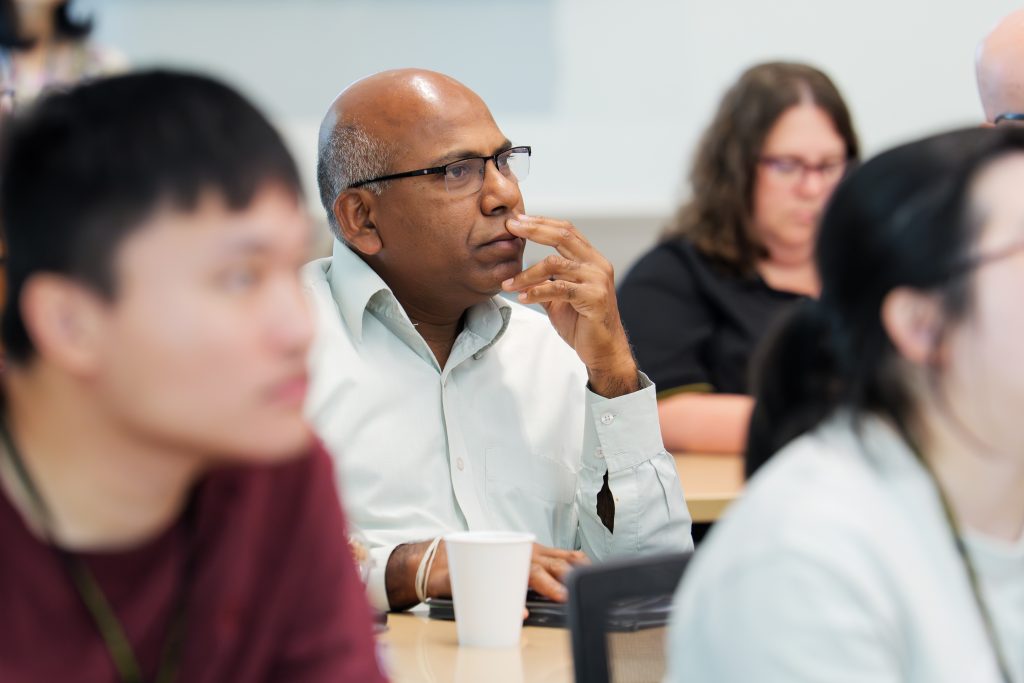Published on

Story contact: Nicholas Childress, CVMMarCom@missouri.edu
Photo by Ben Stewart
Satyanarayana Rachagani, DVM, PhD, an associate professor of veterinary medicine and surgery at the University of Missouri has spent over 15 years studying cancer and immunology. His focus is on pancreatic cancer, one of the deadliest forms of the disease. Through the College of Veterinary Medicine and NextGen Precision Health initiative, his work explores how pancreatic cancer develops and how targeted therapies can improve outcomes. In this Q&A, Rachagani discusses his research, recent discoveries and life outside the lab.
What first sparked your interest in cancer research?
As a veterinarian, my goal has always been to help patients with health problems, particularly cancer. Pancreatic cancer is very lethal, with a five-year survival rate of less than 10%. Most patients are diagnosed at a late stage, often after the disease has already metastasized. That reality motivated me to dedicate my career to finding better ways to diagnose and treat this disease.
Your research spans human and animal health. How do you connect those fields?
Collaboration is essential. For example, I work with another researcher at Iowa State University, who develops nanoparticles to deliver drugs my lab identifies. Here at Mizzou, I collaborate with Jeff Bryan, DVM, PhD, DACVIM (a professor of oncology), and Bhanu Telugu, PhD (an associate professor in the Division of Animal Sciences), to develop large-animal cancer models that are invaluable in testing potential treatments.
What does it mean to you to be part of the NexGen Precision Health initiative?
It’s a privilege to be part of this effort. The NextGen Precision Health building offers resources you simply can’t find anywhere else — from the seven Tesla MRI to advanced electron microscopy — giving us the ability to study cancer initiation and progression in unprecedented detail. What excites me most is how this initiative brings together veterinary and human medicine. By studying the disease in pig and patient tumor-derived organoid models, we can accelerate discoveries that directly benefit people, and vice versa. That collaboration is at the heart of Mizzou’s mission and the NextGen approach: turning research into real solutions, faster.
What is a recent project you’re especially proud of?
One exciting project studied red cabbage as a dietary tool to help prevent colorectal cancer. We discovered that certain compounds in red cabbage support healthy gut bacteria and reduce inflammation, two key factors linked to lowering cancer risk. This kind of lifestyle-based approach could be especially valuable for high-risk patients who currently have few preventive options.
What part of your work do you find most rewarding?
Training the next generation of scientists is very important to me. I mentor undergraduate students in my lab, and recently one received international recognition with an American Association for Cancer Research Undergraduate Scholar Award. Supporting all of my students’ growth is one of the most rewarding parts of my work.
What are your hobbies outside of the lab?
I enjoy gardening. I have a kitchen garden where I grow tomatoes, cucumbers, okra, eggplant and herbs … Growing my own food is healthier, and it connects me with the community through local gardening groups.